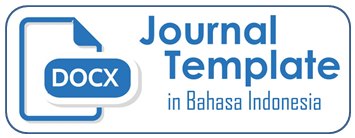THE ROLE OF ACCOUNTABILITY AND TRANSPARENCY IN IMPROVING PUBLIC HOSPITAL PATIENT SATISFACTION
DOI:
https://doi.org/10.26486/jramb.v11i1.4563Abstract
Improving the quality of public health services requires strengthening transparent, accountable, fair, and responsible governance. This study aims to analyze the influence of the principles of justice, transparency, accountability, and responsibility on patient satisfaction at Mardi Waluyo Regional Hospital, Blitar City. This study uses a quantitative approach with a survey method on one hundred outpatients and inpatients. Analysis techniques include bivariate correlation tests and multiple linear regression. The results of the study indicate that all dimensions of governance have a positive relationship with patient satisfaction, with accountability as the dimension that shows the strongest relationship, followed by transparency, responsibility, and justice. Transparency and accountability are the two most determining principles, especially through openness of information, clarity of procedures, and accuracy of service implementation by medical personnel. Meanwhile, justice and responsibility are considered not to have a real impact, although they are still considered important by patients. The implications of this study indicate that the implementation of effective governance can be a primary strategy in building public trust and strengthening government hospital services that are fair, professional, and oriented towards patient satisfaction.
References
Adiyatma, A., & Engkur. (2020). Pengaruh Nilai Pelanggan, Kualitas Pelayanan, Dan Kepuasan Pelanggan Terhadap Loyalitas. STEI, 1–9.
Brown, A. (2019). Understanding corporate governance of healthcare quality: A comparative case study of eight Australian public hospitals. BMC Health Services Research, 19(1). https://doi.org/10.1186/s12913-019-4593-0
Djafar, R., & Sune, U. (2022). Responsivitas Pelayanan Publik (Studi Kasus Pelayanan Pasien BPJS Rumah Sakit Umum Daerah Kabupaten Pohuwato. Jurnal Politik Dan Sosial Kemasyarakatan, 14(1), 99–122.
Dzulkifli, A. M., Arifin, M. A., & Salmah, A. U. (2020). Effect of the principles of good corporate governance on the satisfaction of inpatients at Bahagia Type C Hospital, Makassar City. Enfermería Clínica, 30, 257–260. https://doi.org/10.1016/j.enfcli.2019.10.079
Halawa, Y. N. E., Ginting, C. N., & Kurnia, M. A. (2022). Hubungan Penerapan Good Corporate Governance dan Mutu Pelayanan Kesehatan terhadap Kepuasan Pasien Unit Rawat Inap di Rumah Sakit Umum Haji Medan. Jurnal Kesehatan Komunitas, 8(3), 496–505. https://doi.org/10.25311/keskom.Vol8.Iss3.1330
Javani, A., Jamali, A., & Gholi Ghorchian, N. (2023). Factors Affecting the Good Governance in Teaching Hospitals: A Narrative Review. Medical Journal of The Islamic Republic of Iran. https://doi.org/10.47176/mjiri.37.94
Keliat, S. F. (2016). Pengaruh Good Corporate Governance (GCG) terhadap Kepuasan Pasien Unit Rawat Inap di RSUD dr. Pirngadi Kota Medan [Universitas Sumatera Utara]. https://repositori.usu.ac.id/handle/123456789/828
Lamadjido, R. A., Noor, N. B., & Darmawansyah. (2013). Penerapan Prinsip Good Coorporate Governance Terhadap Kepuasan Pasien Di RSU Anutapura Palu. Jurnal AKK, 2(2), 1–9.
Lidia Kamelia & Mira Veranita. (2022). Analisis Implementasi Good Governance dalam Mewujudkan Pelayanan Publik yang Berkualitas di Kecamatan Ciater Kabupaten Subang. Publik, 9(2), 289–299. https://doi.org/10.37606/publik.v9i2.307
Maryam, S. (2016). Mewujudkan Good Governance Melalui Pelayanan Publik. Jurnal Ilmu Politik Dan Komunikasi, VI(1), 1–6.
Multirahayu, D. (2022). Implikasi Hukum Penerapan Good Corporate Governance Menurut Surat Edaran Menteri Bumn Nomor SE-2/MBU/07/2019 Tanggal 29 Juli 2019 Terhadap Kepuasan Pasien Rawat Inap di Rumah Sakit Pusat Pertamina Jakarta. Jurnal Ilmiah Publika, 11(2), 307–317.
Musaini, A., Tenri, A., & Ramadhan, S. (2022). Transparansi pelayanan publik di rumah sakit umum daerah Kabupaten Buton. Administratio Jurnal Ilmiah Ilmu Administrasi Negara, 9–21. https://doi.org/10.55340/administratio.v11i1.739
Ombudsman Republik Indonesia. (2021). Laporan tahunan Ombudsman Republik Indonesia 2021 [Dataset]. https://ombudsman.go.id
Rizki, A. A., Ginting, C. N., & Nasution, A. N. (2023). Analisis Pengaruh Good Corporate Governance Terhadap Kepuasan Pasien di RSU Royal Prima Medan. Jurnal sosial dan sains, 3(8), 795–814. https://doi.org/10.59188/jurnalsosains.v3i8.991
Said, R. R., Samsualam, & Alwi, Muh. K. (2020). Pengaruh Penerapan Prinsip Good Corporate Governance terhadap Kepuasan Pasien di Unit Rawat Inap Rumah Sakit Umum Daerah Mamuju Tahun 2019. Jurnal Mitrasehat, 10(2), 333–349.
Sulfiani, N. (2021). Good Governance Penerapan Prinsip-Prinsip Good Governance dalam Pelayanan BPJS Kesehatan Di Kota Palopo. Jurnal Administrasi Publik, 17(1), 95–116. https://doi.org/10.52316/jap.v17i1.59
Suryanto, A. (2019). Analisis Pengaruh Penerapan Good Corporate Governance Terhadap Kinerja Keuangan. Jurnal Bina Manajemen, 8(1), 1–33.
Waslyanti, S., Useng, Y., & Risky, S. (2019). Hubungan Peranan Good Coorporate Governance Dengan Kepuasan Pasien Rawat Jalan Di Puskesmas Oheo Kelurahan Inomoiyo Kecamatan Oheo Kabupaten Konawe Utara. MIRACLE Journal of Public Health, 2(2), 220–230.
Wilujeng, D., & Pramudyastuti, O. (2020). Evaluasi Penerapan Zona Integritas Menuju Wilayah Bebas Dari Korupsi dan Wilayah Birokrasi Bersih Melayani (Studi Pembangunan Zona Integritas Rumah Sakit Jiwa Prof. Dr. Soerojo Magelang). Journal of Economics, Management, Accounting, and Technology, 3(2), 127–135. https://doi.org/10.32500/jematech.v3i2.1286
Zebua, O., & Tewu, D. (2023). Good Corporate Governance (GCG) Di Rumah Sakit. KOLEGIAL, 11(1), 94–103.
Downloads
Published
Issue
Section
License
Copyright (c) 2025 Novrida Qudsi Lutfillah

This work is licensed under a Creative Commons Attribution-NonCommercial-ShareAlike 4.0 International License.
Authors who publish with (JRAMB) Jurnal Riset Akuntansi Mercu Buana agree to the following terms:
Authors retain copyright and grant the JRAMB right of first publication with the work simultaneously licensed under a Creative Commons Attribution License (CC BY-SA 4.0) that allows others to share (copy and redistribute the material in any medium or format) and adapt (remix, transform, and build upon the material) the work for any purpose, even commercially with an acknowledgement of the work's authorship and initial publication in JRAMB. Authors are able to enter into separate, additional contractual arrangements for the non-exclusive distribution of the journal's published version of the work (e.g., post it to an institutional repository or publish it in a book), with an acknowledgement of its initial publication in JRAMB.
Authors are permitted and encouraged to post their work online (e.g., in institutional repositories or on their website) prior to and during the submission process, as it can lead to productive exchanges, as well as earlier and greater citation of published work (See The Effect of Open Access).












